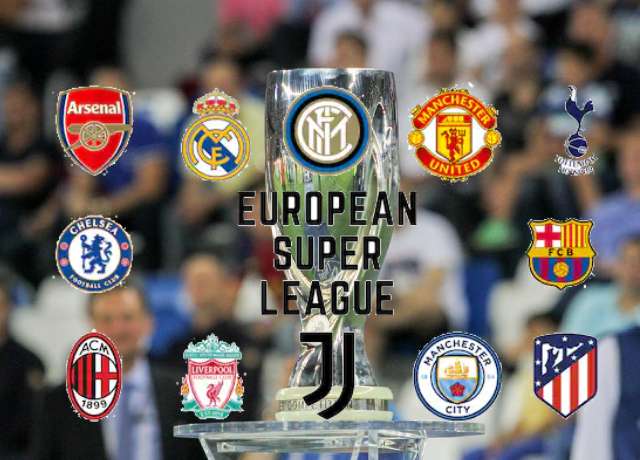The EU’s highest court found that FIFA and UEFA misused their dominating position by outright prohibiting clubs from competing in a European Super League, but underlined that the tournament may still be rejected.
The European Union’s top court ruled on Thursday that UEFA and FIFA violated competition law by rejecting plans for a breakaway Super League.
The lawsuit was heard in the Court of Justice last year after the Super League failed to launch in April 2021. UEFA President Aleksander Ceferin referred to the club leaders as “snakes” and “liars” and threatened to ban players from Super League clubs.
The business founded by 12 rebel teams — currently led by only Real Madrid and Barcelona after Juventus withdrew this year — began legal action to defend its stance, and a Madrid tribunal asked the court to rule on matters of EU law.
UEFA was accused by the clubs of violating European law by allegedly exploiting its market dominance in football competitions.
“The FIFA and UEFA rules making any new interclub football project subject to their prior approval, such as the Super League, and prohibiting clubs and players from playing in those competitions, are unlawful,” the court said.
“There is no framework for the FIFA and UEFA rules ensuring that they are transparent, objective, non-discriminatory and proportionate.”
Although the verdict will enhance Super League promoters’ hopes of restarting their project, the court stated that it “does not necessarily mean that a competition such as the Super League project must necessarily be approved.”
“The court, having been asked generally about the FIFA and UEFA rules, does not rule on that specific project in its judgment.”
What Changes Has Been Made In Super League Idea?
Super League organizers proposed a new plan in February for a multi-division competition comprising up to 80 European football teams and operating outside of UEFA’s jurisdiction, two years after the initial scheme failed.
English clubs are unlikely to join such a resurrected proposal. The Premier League’s international appeal and financial power have only grown in the previous two years, and a measure announced last month by King Charles offered powers to prevent English teams from joining a breakaway league.
The government stated in a paper detailing the new Football Governance Bill that the European Super League was “fundamentally uncompetitive” and “threatened to undermine the footballing pyramid against the wishes of fans.”
The finding released on Thursday was the most anticipated sports case by the Court of Justice since the so-called Bosman finding in 1995.
That lawsuit upended soccer’s transfer system, increased salaries for top players who became free agents when their contracts expired, and widened a financial and competitive gulf between wealthy teams and the rest.
The proposed 20-team Super League, with guaranteed spots for up to 15 founders, would have effectively superseded the Champions League, undermining domestic leagues’ sporting and commercial appeal.
The absence of relegation was fundamentally at odds with European football, which, unlike major sports leagues in the United States, has the risk and reward of moving up or down divisions based on performance.
When the Super League was announced as an alternative to the UEFA-run Champions League, the rebel clubs from England, Spain, and Italy faced significant scorn.











